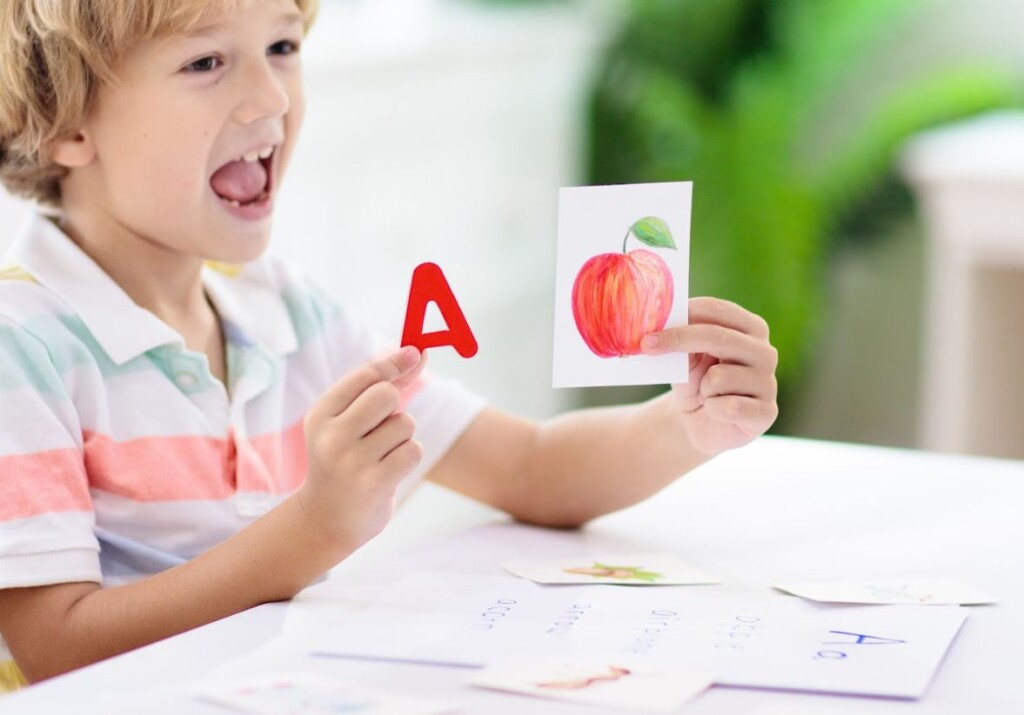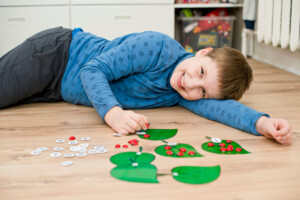4 Fun ESL Games and Puzzles

Playing ESL games, puzzles and activities helps challenge your child’s brain and develop their linguistic skills.
Including ESL games, English as a Second Language, in your weekly routine helps infuse fun into your child’s ESL practice.
These ESL games and puzzles will liven up your at-home English practice, helping your child get excited about practicing English.
1. Crossword Puzzles
Crosswords develop spelling, vocabulary, memory, and problem-solving skills. With my students, I use crosswords with any age and level, adjusting the type of crossword and what the child must do based on age and level. I also suggest always using crosswords based on themes and words that your child already knows. So, let’s break down how you can approach the crosswords with your child by age and level.
Beginner and ages 5-6: For this level, use themes that they know (pets, fruit, farm animals, numbers, colours, etc.) and use crosswords that have pictures as hints for the words in the crossword. Additionally, have your child give you the answer and spell out the word for them.
You can have your child write the word out while you spell it out loud, or you can write the word while spelling it out loud. Have them repeat the letters back to you once you write them down. You can also ask them for the first letter of each word, working with them to sound the beginning letter out.
Intermediate (ages 7 and up): For this level, use themes they know and crosswords that use pictures for hints. Have your child try and spell out the words and write them out, but if they get stuck with spelling, help them sound the word out and give them the answer if needed.
Advanced (ages 7 and up): For this level, use themes your child knows and crosswords that use pictures for hints or written hints. Have your child work on this crossword more independently but be available if they get stuck. Remember you always want to challenge but not frustrate your child.
Crossword resources:
2. Word Search Puzzles
Word searches help develop children’s vocabulary, spelling, and recognition skills. Just like crosswords, I suggest choosing themes for the word searches that your child has learned as a way to review.
For beginners or children ages 5-6, use word searches with easier words and themes and fewer words to find.
For children intermediate and advanced in ESL, you can choose word searches with longer and more words and more advanced themes.
Word search resources:
3. Mad Libs
I suggest using Mad Libs more with children intermediate and advanced in ESL. Mad Libs are fun ESL games to develop children’s vocabulary, spelling, and recognition of verbs, adjectives, adverbs, and nouns. You can switch between asking your child to fill in the blanks and your child asking you to fill in the words.
Mad Lib resources:
4. Wordle
Wordle is a game I suggest for more advanced ESL students. Wordle helps develop your child’s vocabulary, spelling, and problem-solving skills.
You can download wordle as an app on your phone, tablet, or other mobile devices.
English puzzles are a great way to infuse your child’s at-home ESL practice with fun.
These puzzles will help your child be excited about practicing English with you at home!

ESL games absolutely motivate young children as they focus on a new language. They especially love it when they play with family and find meaningful moments.
Did you enjoy this type of content? Visit Langmobile’s Blog for more!

